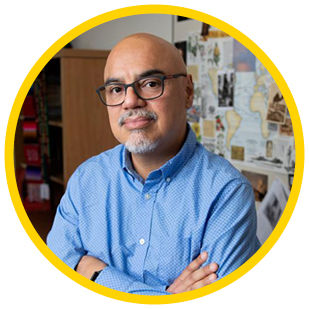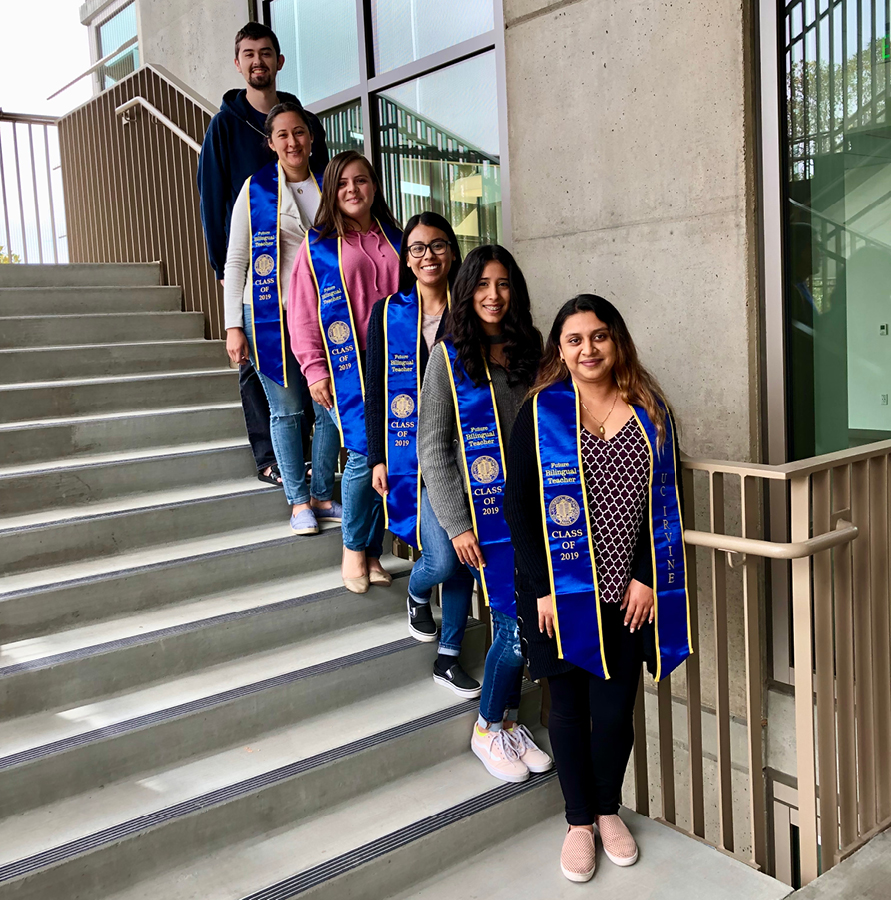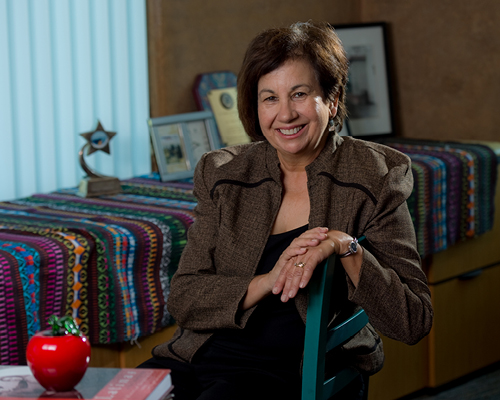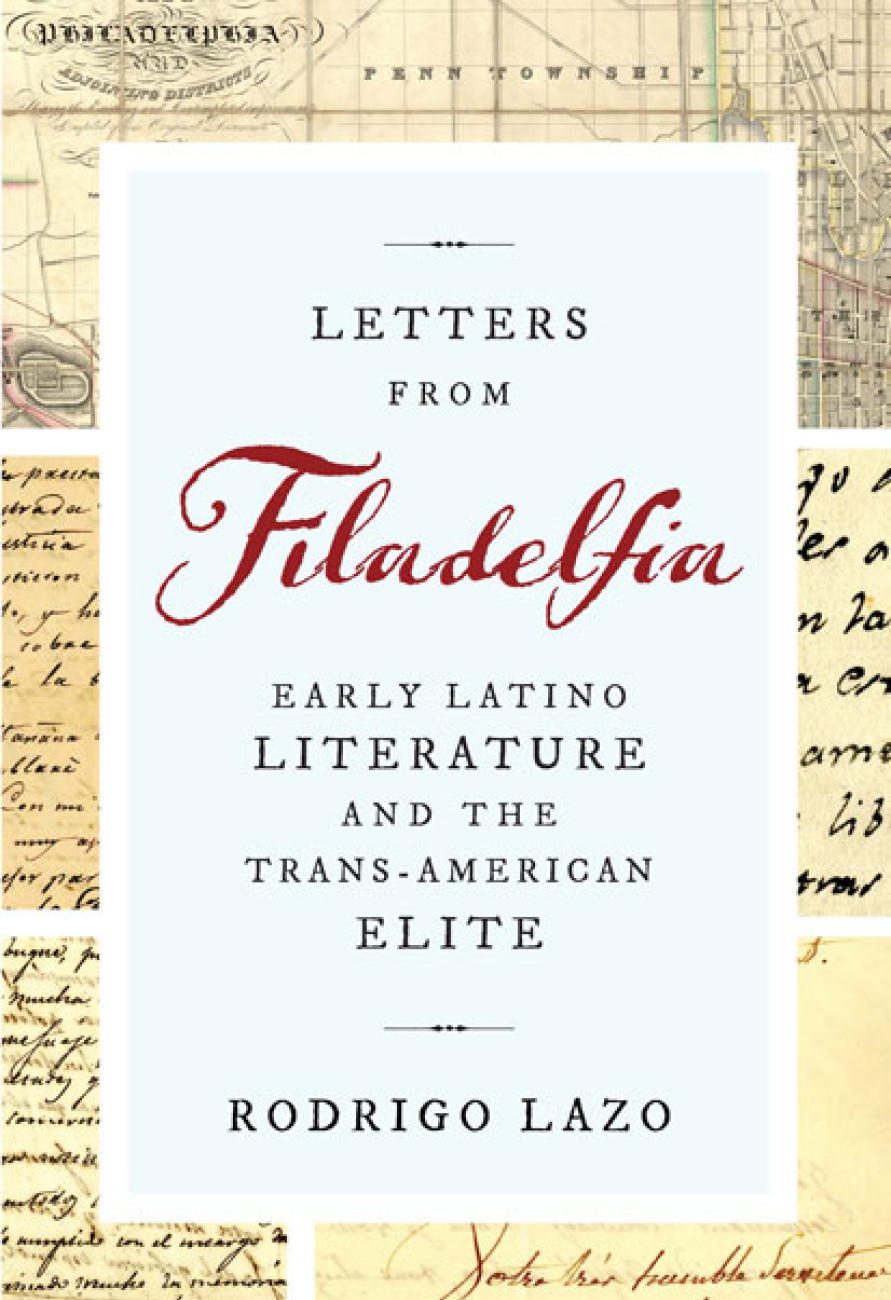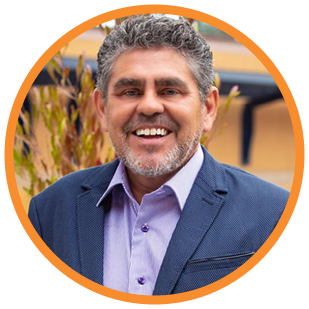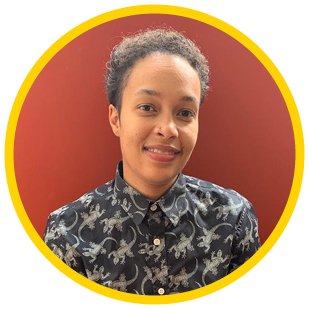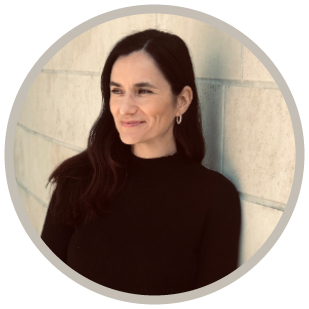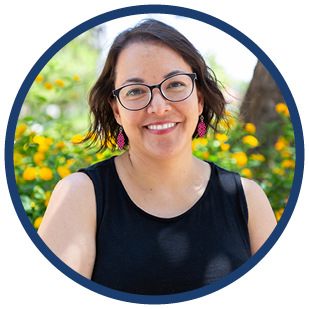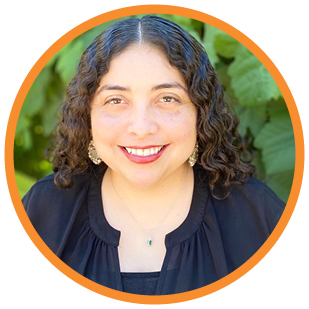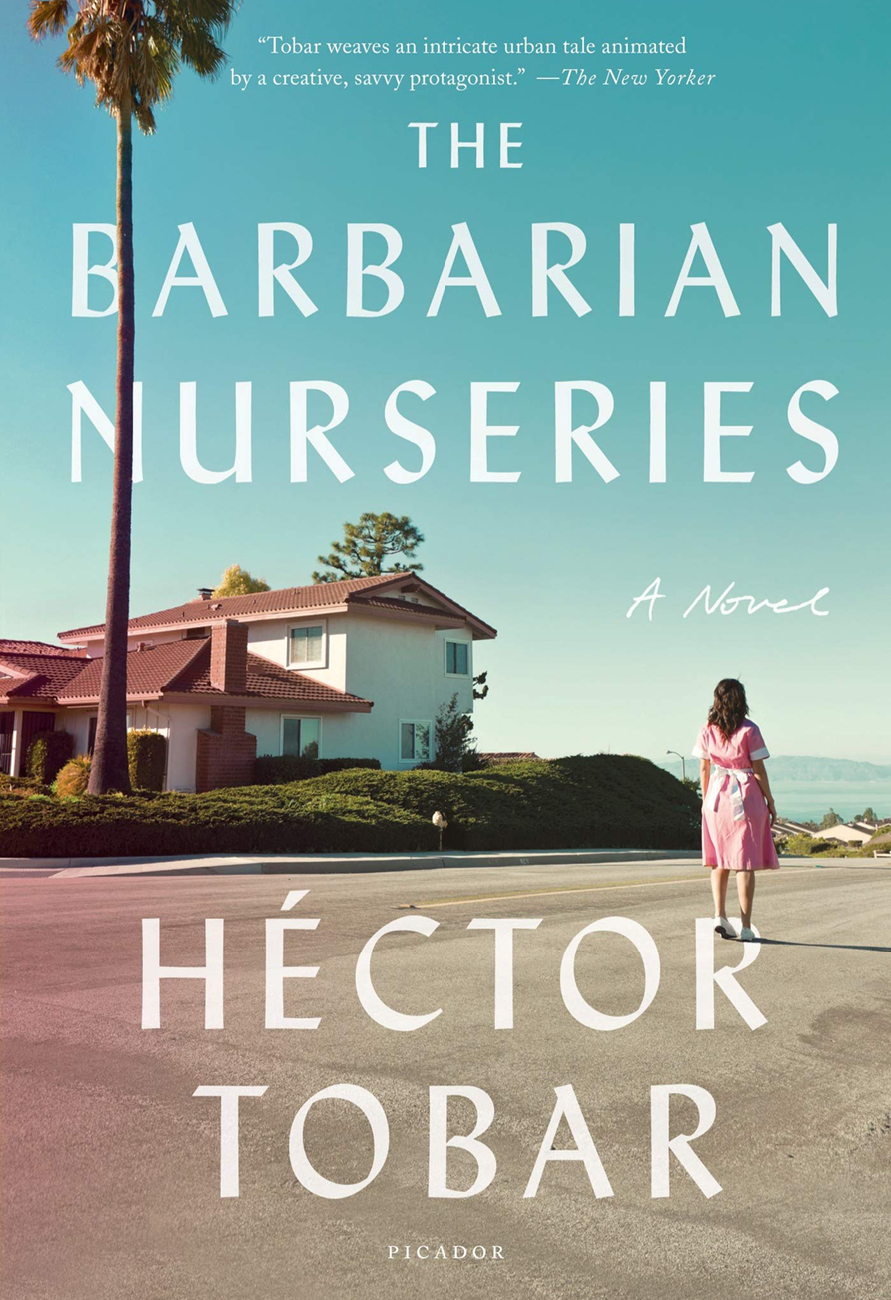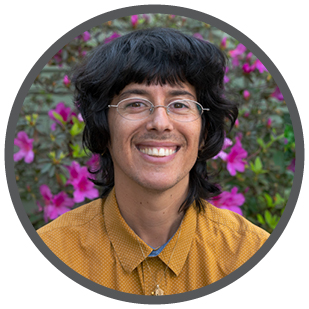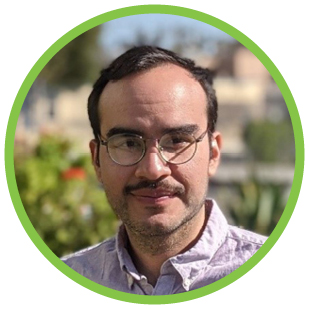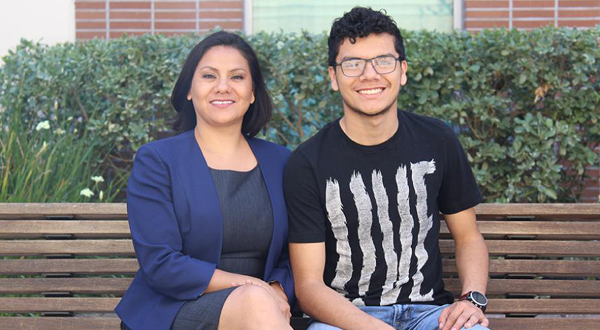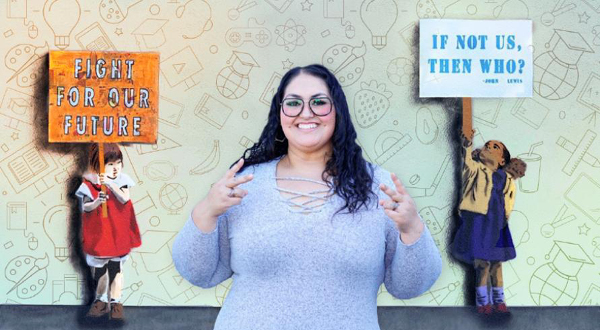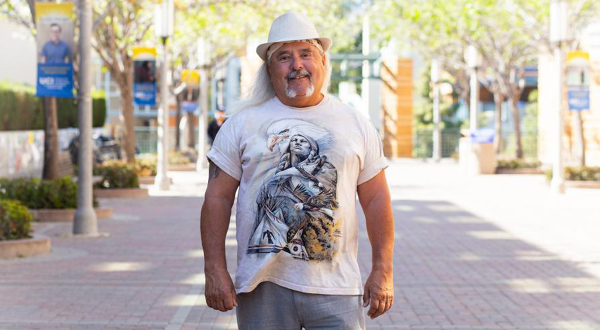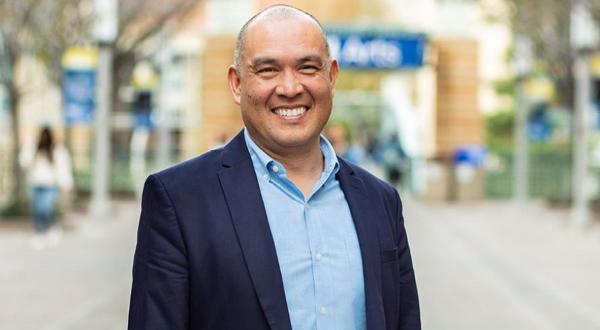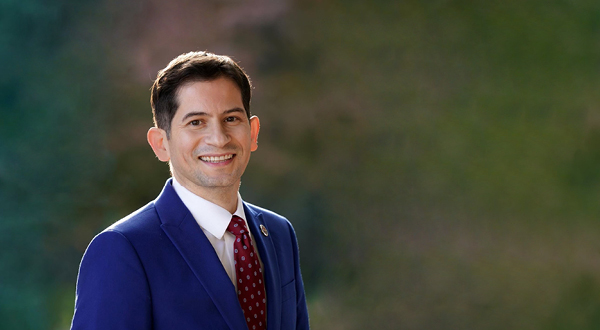During the COVID-19 lockdowns of early 2020, the usual chorus of cars, buses and hustling children had vanished from the parking lot of Lynwood’s Cesar Chavez Middle School. That silence was broken a few weekends each month, however, when hundreds of families poured in for “pandemic drive-through parties” that provided free groceries, gift cards, baby essentials and other supplies along with entertainment for a few of the South Los Angeles communities hit hardest by the pandemic.
These massive food and resource fairs are the brainchild of Lynwood educator Audrey Casas. Shortly after her school transitioned to virtual instruction in early March 2020, she worried that many local students reliant on free district-provided food might go hungry during spring break. In Lynwood, where one in five people live in poverty, many of Casas’ own students had fallen through such bureaucratic cracks.
What started as gift card distributions to individual families evolved into organized food drives, and soon into all-out “pandemic parties” serving up to 2,000 families. Casas didn’t want to recreate the “silent, anti-social, almost shameful” aura of the food drives she remembers attending as a child, so while enforcing appropriate health precautions (patrons wore masks, physically distanced and mostly remained in their cars), Mastering Hope’s fairs embodied Casas’ life motto: “Have fun getting it done.”
Casas recruited jugglers, roller derby teams and a live DJ; started soliciting donations of toys and snacks to hand out to kids waiting in their cars; and invited a friend and fellow community organizer to host a free specialty coffee stand for parents.
“My whole goal is to confuse people,” she says. “I want them to think they’re at a carnival, where the groceries they get at the end are just a happy bonus.”
Read the full story here.
Desde que comenzaron los confinamientos por COVID-19 en marzo, desapareció el sonido habitual de automóviles, autobuses y niños del estacionamiento de Cesar Chavez Middle School de Lynwood. Sin embargo, ese silencio se rompe algunos fines de semana de cada mes, en que cientos de familias acuden a las “fiestas pandémicas de autoservicio” que ofrecen alimentos gratuitos, tarjetas de regalo, artículos esenciales para bebés y otros artículos, además de opciones de entretenimiento para algunas de las comunidades del sur de Los Ángeles más afectadas por la pandemia.
Estas ferias masivas de alimentos y recursos fueron ideadas por Audrey Casas, educadora de Lynwood y graduada de la UCI (Licenciatura de Artes en Inglés en 2019). Poco después de que la escuela donde Casas trabaja hiciera la transición a la modalidad virtual a principios de marzo, le preocupaba que muchos estudiantes locales que dependen de los alimentos gratuitos proporcionados por el distrito pudieran pasar hambre durante las vacaciones de primavera. En Lynwood, donde una de cada cinco personas vive en la pobreza, varios de los propios estudiantes de Casas habían sido víctimas de tales fallas burocráticas.
Lo que comenzó como distribuciones de tarjetas de regalo a familias particulares se ha convertido en colectas organizadas de alimentos, y poco después en “fiestas pandémicas” que asistieron a hasta 2000 familias. Casas no quería recrear el aura ”silenciosa, antisocial, casi vergonzosa” de las colectas de alimentos a las que recuerda haber asistido cuando era niña, por lo que mientras hace cumplir las precauciones de salud adecuadas (los clientes usan mascarillas, hay distanciamiento físico y la mayoría permanece en sus automóviles), las ferias de Mastering Hope encarnan el lema de vida de Casas: “diviértete haciéndolo”.
Casas reclutó malabaristas, equipos de roller derby y un DJ en vivo; comenzó a solicitar donaciones de juguetes y refrigerios para repartírselos a los niños que esperaban en sus automóviles; e invitó a un amigo y compañero organizador comunitario a atender un puesto gratuito de cafés especiales para padres.
“Mi objetivo principal es confundir a la gente”, indicó. “Quiero que piensen que están en un carnaval, donde los comestibles que reciben al final son solo un afortunado agregado”.
Lea la historia completa.


